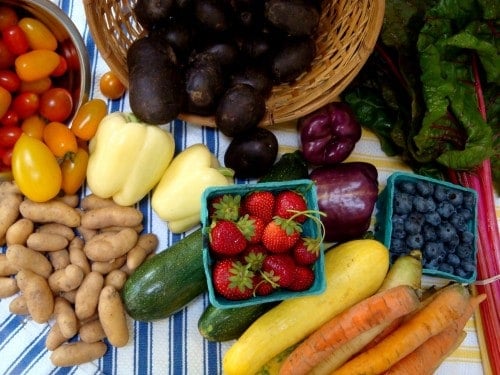
With my disappointment about genetically engineered salmon being pushed to be approved for food (and a slew of other disappointing news about food regulations), I wanted to change my gear into thinking more positive ways of eating and revisiting the ways to eat more sustainably. Although you probably know most of it, I figured, it wouldn't hurt to check the list again.
25 Ways to Eat Sustainably:
- Use the WHOLE vegetable - the stalk, leaves, the whole kit and kaboodle.
- Get to the root - buy loose vegetables and not the factory 'boxed' kinds.
- Be a farmers' market regular and get staples - onions, potatoes, herbs, etc. that you always use and need
- Buy Heirloom - def. of heirloom - crop from seeds that have been passed down for generations, grown in small crops that may restore the health of the soil. I think this is so much healthier for us and the planet, don't you think?
- Stock up - buy in bulk when in season and freeze, pickle or preserve it. Use BPA free glass storage containers to store food and avoid plastics.
- Get advice - for recipes from farmers
- Challenge yourself - use up week's worth of meal.
- Local is always the priority. If you can't buy local, buy organic.
- Buy local eggs - with recent recalls of millions of factory eggs due to Salmonella outbreak, need I say more?
- Use your basement to keep your hardy vegetables - like squash, sweet potatoes, beets, turnips, and rutabagas. They will keep up to six months in temperatures 40∘F or below. Store them as close to the time they were harvested as possible - preferably unwashed, green tops will attached and packed in sawdust or moist peat moss.
- Get farm-fresh food delivered - CSA. If you can't use up one portion, go in on it with a friend of a neighbor.
- Be packaged conscious - when buying food from the supermarket, be conscientious of packaging. Buy loose and no packaging when possible. Recycled or recyclable next.
- Buy organic milk - Not all organic milks are created equal. Check your brand at sustainable.org and opt for antibiotic and rBGH-free (no artificial bovine growth hormones)
- Use unprocessed grains. - Go for brown rice, barley, quinoa or farro. they are healthier for you too. Better yet, go for buckwheat as they can improve soil quality. (Of course, be mindful of arsenic levels and go for brands that have lower levels.)
- Cook with dry beans - buy dry beans, soak them overnight. You'll cut cooking time, save money, and energy usage in half!
- Read labels. Don't buy any packaged foods that have more than five ingredients or ingredients you cannot pronounce, nothing artificial, and no cartoons on the package.
- Freeze organic berries - when they are in season. Berries are on top of the organic foods to buy list. Buy them when they are in season and freeze them to have in the winter.
- Make your own seltzer - Buy a soda stream machine and make your own seltzer to avoid all the chemicals that are in commercial sodas. We don't buy seltzer waters anymore since my review of Soda Stream. It is great for keeping soda bottles out of the landfill and making delicious fruit spritzers.
- Buy local bread - buy bread from your local bakery or farmers market. It comes without packaging, it will be fresher, and the chances are, it will have fewer ingredients.
- Make homemade breadcrumbs and croutons. Why buy packaged ones when you can make them with stale bread so easily by baking them and making them into crumbs or croutons yourself?
- Read PLU codes - PLU is an international Price Look Up system for labeling produce. It's a lot more complicated than I'd (or you'd) want to know but just remember; any item with PLU codes starting with '9' is organic, '4' is conventional, '3' is local, and '8' is GMO.
- Become friends with local growers and fishermen so you can find out what's being picked or caught. You'll know where your food comes from. I know my fish monger, grass fed and finished meat rancher, and organic herb grower at the farmers market.
- Cut out processed corn. THIS is a biggie. Avoid buying items with corn or corn-based substances (corn oil, cornstarch, or corn syrup) as ingredients. According to the USDA, at least 85 percent of the corn grown in this country has been genetically modified, meaning the plants were altered to make them more pest resistant.
- Eat more REAL corn. Ask your farmer if he uses GMO corn seeds (or from Monsanto's roundup seeds).
- Wash vegetables submerged in a basin with vinegar and water for ten minutes. It'll clean any thing that you don't want to ingest. And I'll leave you at that but inegar and water soak WORKS! You don't need any fancy fruit washes.


View 25 more ways ----> HERE.

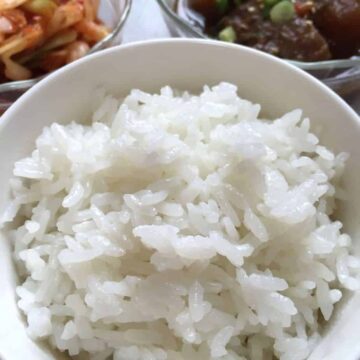
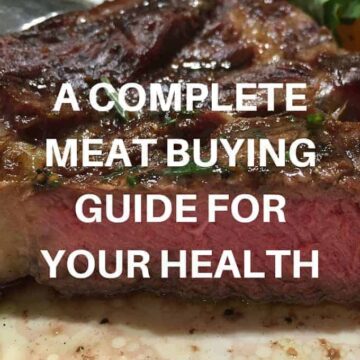
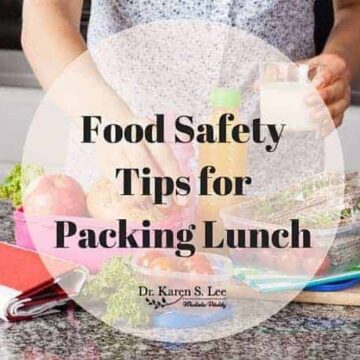
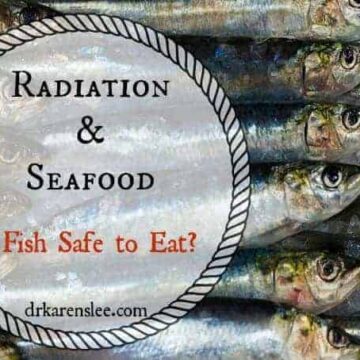
Paul Salinger says
Nice post. Look forward to the next 25. Of course, in many ways you can boil this down to the Michael Pollan creed - Eat Food, Not Too Much, Mostly Plants. But, this gives some detail on how to get there.
Karen says
Hi Paul,
Yes. You are absolutely right. There are a number of different ways to eat sustainably for our health, as well as for our plant's. And we can learn how to do that from Pollan, Bittman, Waters and many others.
Here are 25 more ways to eat sustainably
Thanks for stopping by. 🙂
Kathy says
Great list, Karen. We do it all, but then we can grow our own.
savvybrown says
Wonderful post with some great ideas! Thanks Karen!
- savvy
http://savvybrown.com
Jen on the Edge says
I do pretty much all of this except, instead of joining a CSA, I have a large garden just 20' from my back door.
Karen says
I go back and forth about joining CSA. I don't want to commit and yet I do. I do like going to the market and seeing what is available that day and choosing my produce. My little garden provides certain things but not fruits. And we are BIG fruit eaters. Love the apples these days. 🙂